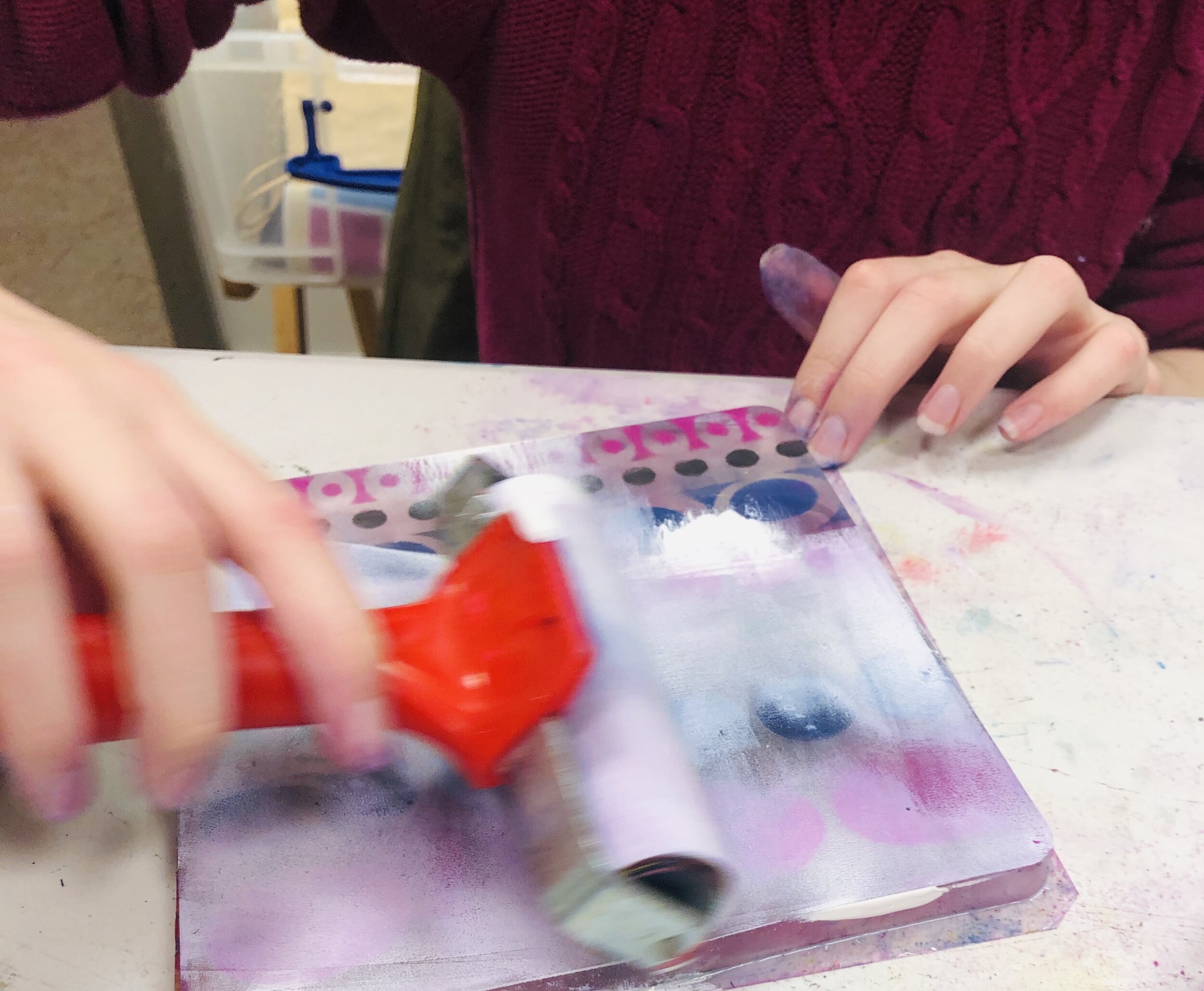CASE STUDY
Core Art Journaling working with Hampshire Cultural Trust and Hampshire CAMHS
Who we are?
Core Art Journaling was established 2018 by Deborah Porter - an Artist, Education Facilitator and Mental Health advocate - to give children and adults an accessible creative wellbeing tool to encourage self exploration and personal development.
1 in 8 children have a diagnosable mental health condition; that’s roughly 3 in every classroom (i). And yet, less than 1 in 3 of these children and young people will get access to NHS care and treatment (ii).
Offering alternative coping strategies and a social prescribing tools is no longer a ‘nice to have’; it is a necessity. Research (iii) has shown that - when placed in a health setting - art can be a powerful method of intervention. It has been found to improve self-confidence, reduce anxiety, stimulate cognitive function and even help people deal with pain and symptoms. Core Art Journaling exists to facilitate these incredible benefits.
“Art journaling has been an interesting, happy and positive activity for my daughter. The sessions have really helped her unload her concerns, fears and anxieties. Her ability to adjust to situations has improved and I see a real difference in her demeanour.” -
E’s Mother.
Since January 2020, we have been working with Hampshire Cultural Trust and Hampshire Child and Adolescent Mental Health Service (CAMHS) as part of the ICE project. The innovative project has been running since 2017, and has engaged 230 at-risk and vulnerable young people aged 11 - 18 through cultural and creative activities. These activities have all been constructed to support youth health and wellbeing, and have time and time again shown major impacts on participants’ confidence, self-esteem and sense of freedom. At the start of this year, Core Art Journaling was invited to facilitate their own segment of the project, teaching young people how to express their thoughts, emotions and uncertainties through creative art journaling as part of their ‘wellbeing toolbox’.
Art journaling isn’t about delivering the perfect picture. It is about giving these young people a visual dialogue with themselves; a space to experiment and articulate their innermost feelings. The group were vulnerable young adults who used a safe haven wellbeing centre in Aldershot, Hampshire. They were individuals who perhaps had never felt confident or comfortable enough to express themselves, or to join the dots between how they were feeling and the best way to process and manage those feelings. Together, they took part in 10 workshops, the participants tapped into new elements of art journaling and learnt exciting new creative techniques.
This included: Mindful mark making, Investigating social issues and how these could be expressed through art, connecting images with words using intuitive collage, taking the art journals home to continue creatively connecting and build their own resilience.
An important part of the work was the Trinity Arts Award; here they would log data every week, showing what they had worked on. At the end, everyone was awarded an art certificate, giving them a sense of pride, hope and determination. Toward the end of the project, their growth in confidence was palpable; they relished in the emotional and creative opportunities the weekly space delivered. For them, it was their time to be honest and unleash their innermost feelings.
“We did free flow writing where we wrote whatever we wanted and then no one would see it because we painted over it. I liked this because I could write anything and be honest and no one would know. It meant I could be free.” - A, 14 years old.
“It was really peaceful just to make marks” E, 15 years old
Now is the time to bring art into healthcare, and give children and young adults the opportunity to discover their emotional resilience.
From research at UCL (iv) on the importance of social and cultural participation on health (pioneered by arts and cultural engagement advocate, Dr Daisy Fancourt) to the world’s largest ever study into the impact and scalability of arts interventions on physical and mental health by King's College London and UCL (v), this is a topic that is truly revolutionising the public agenda. We have seen first hand the fundamental change and progress that comes from our art journaling sessions. It is an accessible outlet that doesn’t judge, doesn’t discriminate and is tailored entirely around the individual.
“Deborah really engages with my daughter during the sessions. They have had such a positive impact on her; she is always happy, chilled and vibrant afterwards.”- B’s Mother
We want to share this transformation with as many young adults as possible. In the words of A; “It felt really good to just let it out!”
References: (i) https://digital.nhs.uk/data-and-information/publications/statistical/mental-health-of-children-and-young-people-in-england/2017/2017(ii) https://www.nao.org.uk/wp-content/uploads/2018/10/Improving-children-and-young-peoples-mental-health-services.pdf(iii) https://www.nhsconfed.org/-/media/Confederation/Files/Wales-Confed/Literature-review-of-arts-and--health-and-wellbeing.pdf(iv) https://www.ucl.ac.uk/epidemiology-health-care/people/fancourt(v) https://www.kcl.ac.uk/news/worlds-largest-study-into-impact-of-arts-on-physical-and-mental-health .






